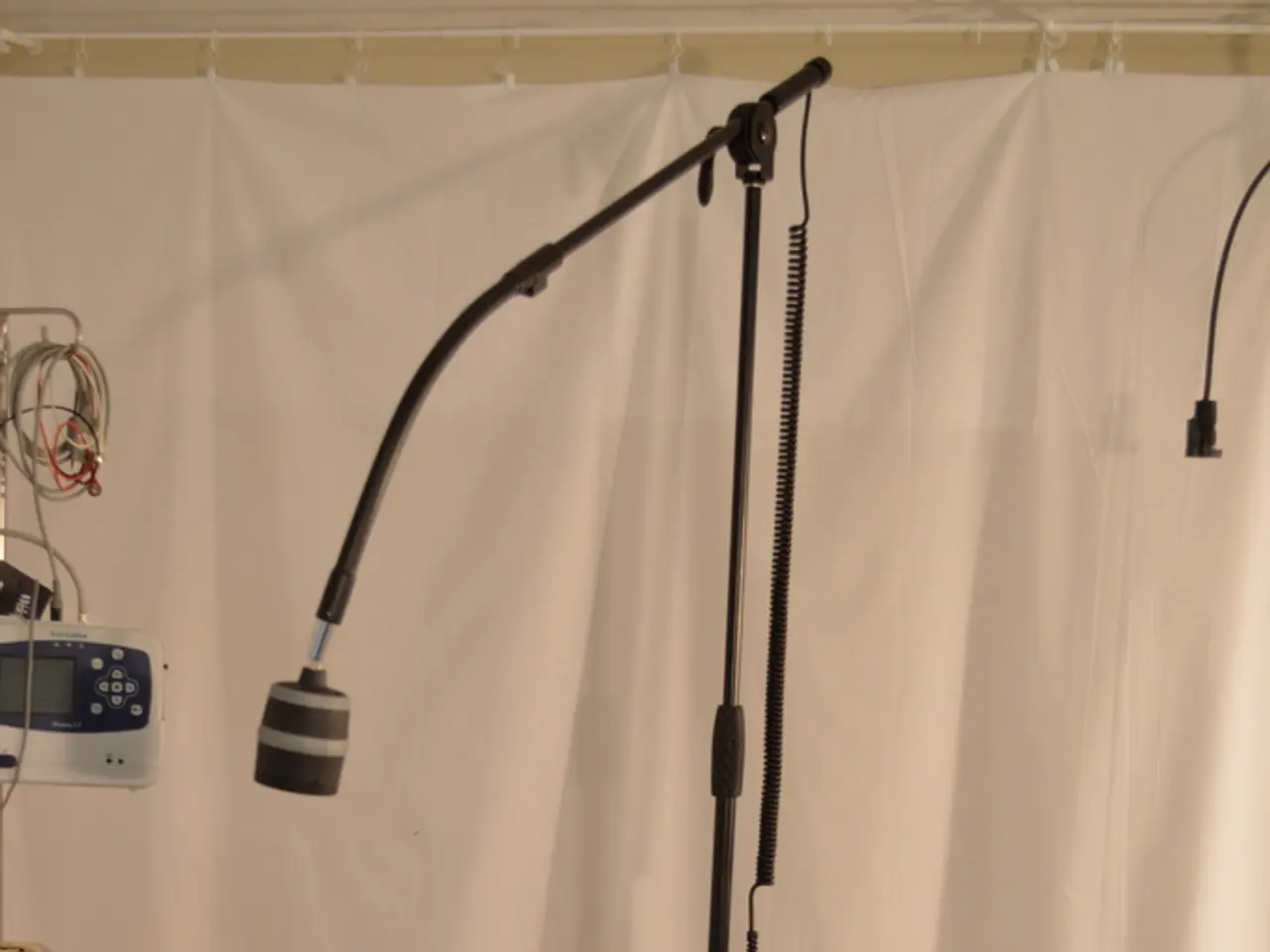Funding halt for international medical studies, primarily affecting European researchers, initiated by Trump administration.
Title: NIH Freezes Collaborations with Foreign Researchers, Shaking Up Global Medical Research
In the whirlwind of 2025, the ripple effects of the Trump administration's policy shake things up for thousands of Europe-based scientists. The US National Institutes of Health (NIH), the world's largest biomedical research agency, has frozen most collaborations between medical researchers in the United States and abroad, citing reasons including lack of transparency and the need to protect US national security.
The NIH doled out over $35 billion (€33.6 billion) to universities, medical schools, and other institutions in 2025. A significant portion of this money was allocated for domestic research, but organizations often teamed up with research teams outside the US, now under the new policy's spotlight.
Did You Know? The Top 5 European Countries to Receive NIH Funding:1. United Kingdom2. France3. Netherlands4. Sweden5. Finland and Austria (tied)
In 2023, the year with the most recent data available, there were a staggering 4,800 NIH-funded projects with collaborators in Europe. These projects ranged from HIV vaccine development to uncovering how certain genes could raise the risk of obsessive-compulsive disorder (OCD).
The abrupt new policy immediately eliminates all future grants, including the possibility of renewal for ongoing projects. The NIH plans to replace the sub-award programme with another funding mechanism by late September, which ostensibly allows the agency to monitor how the money is spent more closely.
But what about current projects with foreign partners? The agency clarified that it is not revoking funding for them, leaving open the possibility of future changes.
Maria Yazdanbakhsh, who heads the Leiden University Center for Infectious Diseases in the Netherlands, faces uncertainty as she works towards a more effective malaria vaccine, funded by the NIH. "We were going to apply for more funding to continue with the exciting outcomes of the project," she shared. "We will be affected in the future, where promising work is halted and is not taken further."
Nicola Stonehouse, a virologist at the University of Leeds studying enteroviruses on an NIH-funded grant, expresses worries, "How easy it's going to be for people outside of the US to be involved in these [medical research] projects going forward, that's an open question." She adds, "The decision really damages international collaboration."
Implications:Fewer opportunities for Europe-based researchers: Applying for direct funding from the NIH is rarely successful for scientists outside the US. Though currently direct grants are not affected by the policy, researchers fear they could be next.Uncertain future for active projects: The policy brings uncertainty for current active projects with foreign partners, as continuation beyond their current funding remains unclear.
But the NIH Chief, Dr. Jay Bhattacharya, maintains that the move "will enhance our capabilities to provide effective oversight and management of these financial obligations in support of rigorous scientific research" citing a recent audit by the US government watchdog[6]. On the flip side, Europe policymakers are called upon to take measures to mitigate the impact of US cuts on European scientists[2].
[1] Holden, C. (2023). Feds put the freeze on NIH foreign grants. Science Magazine.[2] Space, S. (2023). Europe wants to poach US academics in wake of Trump funding cuts. Can it entice them to move? The Guardian.[3] Levin-Rector, D. (2023). Health in 2024: The biggest medical breakthroughs and research that gave us hope this year. The New York Times.[4] U.S. National Institutes of Health. (n.d.). NIH announces policy on outside administrative expenses on NIH grants and contracts. Press release.[5] Lynch, E. (2023). Research universities and nonprofits file suit over NIH's freeze on international funding. The Chronicle of Higher Education.[6] Government Accountability Office. (2023). NIH Needs to Improve Financial Management of Subawards to Improve Their Oversight and Control. Report.
- The NIH's new policy has left Europe-based researchers uncertain about their future funding, as they often collaborate with US researchers on projects related to health-and-wellness, such as HIV vaccine development and gene research linked to medical conditions like OCD.
- Dr. Maria Yazdanbakhsh, an immunologist at Leiden University, is one of these researchers, facing the potential halt of her malaria vaccine project, funded by the NIH.
- The new policy immediately ends the possibilities of future grants, including renewals, but assurances have been made that ongoing projects will not lose their funding, at least for the time being.
- With limited opportunities for Europe-based researchers to secure direct funding from the NIH, there is a growing concern that science collaboration between the US and Europe may be severely impacted, potentially weakening the global medical research community.





